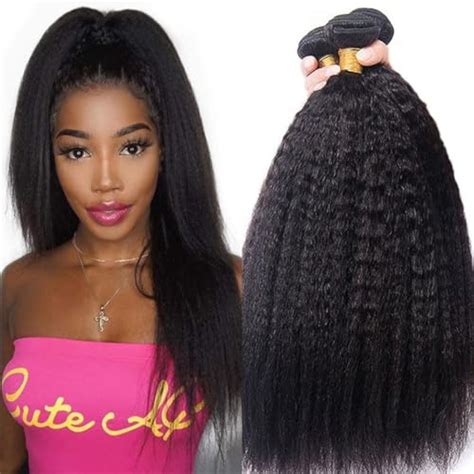For breast cancer patients, wigs can be an essential tool in regaining a sense of self and normalcy during treatment and recovery. Hair loss is a common side effect of chemotherapy and radiation therapy, and it can be a devastating blow to one’s self-esteem and confidence.

Types of Wigs for Breast Cancer Patients
There are a wide variety of wigs available for breast cancer patients, including synthetic, human hair, and blended wigs. The best type of wig will depend on individual needs and preferences.
- Synthetic wigs are made from man-made materials and are typically more affordable than human hair wigs. They are also heat-resistant, so they can be styled with heat tools.
- Human hair wigs are made from real human hair and are more expensive than synthetic wigs. They provide a more natural look and feel, and they can be cut, styled, and colored just like real hair.
- Blended wigs are a combination of synthetic and human hair. They offer a good balance of affordability and quality.
How to Choose a Wig for a Breast Cancer Patient
When choosing a wig for a breast cancer patient, there are several factors to consider:
- Head size: The wig should fit snugly on the head without being too tight or too loose.
- Hair color and texture: The wig should match the patient’s natural hair color and texture as closely as possible.
- Personal style: The wig should reflect the patient’s personal style and preferences.
- Comfort: The wig should be comfortable to wear for long periods of time.
- Cost: Wigs can range in price from a few hundred dollars to several thousand dollars. It is important to set a budget before beginning the search.
Benefits of Wearing a Wig for Breast Cancer Patients
Wearing a wig can offer numerous benefits for breast cancer patients, including:
- Improved self-esteem
- Increased confidence
- Reduced anxiety
- Enhanced social interaction
- Improved quality of life
Tips for Breast Cancer Patients Who Are Wearing Wigs
- Choose a wig that fits well and is comfortable to wear.
- Be gentle with the wig when washing and styling it.
- Store the wig in a cool, dry place when not in use.
- Don’t be afraid to experiment with different styles.
- Have fun with your wig!
How to Style a Wig for Breast Cancer Patients
There are many different ways to style a wig for breast cancer patients. Here are a few tips:
- Start with a clean wig. Wash the wig according to the manufacturer’s instructions.
- Apply a wig cap. A wig cap will help to keep the wig in place and prevent it from slipping.
- Use a wig brush. A wig brush is specially designed for use on wigs. It will help to prevent tangles and keep the wig looking its best.
- Style the wig as desired. You can use heat tools to style the wig, but be sure to use a low heat setting to avoid damaging the wig.
- Set the style with hairspray. Hairspray will help to keep the style in place all day long.
How to Care for a Wig for Breast Cancer Patients
To keep your wig looking its best, it is important to care for it properly. Here are a few tips:
- Wash the wig regularly. The frequency of washing will depend on how often you wear the wig. However, it is generally recommended to wash the wig every 7-10 days.
- Use a wig shampoo and conditioner. Wig shampoo and conditioner is specially formulated for use on wigs. It will help to keep the wig looking and feeling its best.
- Avoid using harsh chemicals. Harsh chemicals can damage the wig. Be sure to use only products that are specifically designed for use on wigs.
- Store the wig in a cool, dry place. When not in use, store the wig in a cool, dry place. This will help to prevent the wig from fading or becoming damaged.
Financial Assistance for Breast Cancer Patients Who Need Wigs
There are many organizations that offer financial assistance to breast cancer patients who need wigs. These organizations can provide grants or loans to help patients purchase wigs.
Here are a few resources:
- The American Cancer Society: https://www.cancer.org/treatment/support-programs-and-services/financial-support.html
- The National Cancer Institute: https://www.cancer.gov/about-cancer/treatment/side-effects/hair-loss
- The Patient Advocate Foundation: https://www.patientadvocate.org/
Common Q&A
How are wigs made?
Wigs are made from a variety of materials, including human hair, synthetic hair, and a blend of the two. Human hair wigs are made from real human hair that has been cut and sewn onto a cap. Synthetic hair wigs are made from man-made materials, such as nylon or polyester. Blended wigs are made from a combination of human hair and synthetic hair.
How much does a wig cost?
The cost of a wig can vary greatly depending on the type of wig, the length of the wig, and the manufacturer. Human hair wigs are typically more expensive than synthetic wigs. Blended wigs are typically priced between human hair wigs and synthetic wigs.
How long does a wig last?
The lifespan of a wig depends on the type of wig, how often it is worn, and how well it is cared for. Human hair wigs can last for several years with proper care. Synthetic wigs typically last for 6-12 months. Blended wigs typically last for 1-2 years.
Can I swim in a wig?
It is not recommended to swim in a wig. Chlorine and salt water can damage the wig and cause it to become matted. If you must swim in a wig, be sure to rinse the wig thoroughly with fresh water after swimming.
Can I dye a wig?
It is not recommended to dye a wig, as this can damage the wig. If you want to change the color of your wig, you can purchase a wig in the desired color.
